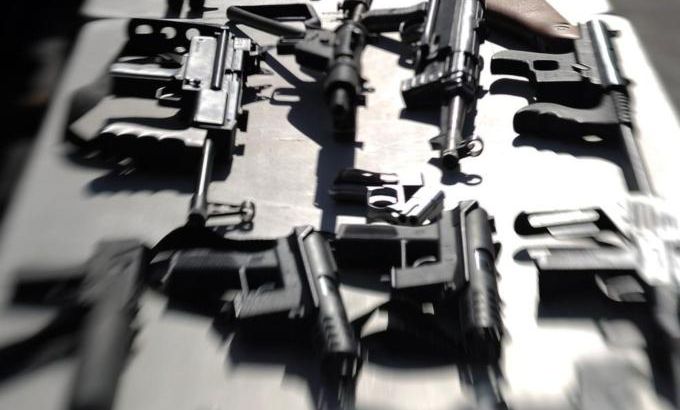
Can gun control reduce crime in the US?
We examine if a ban on assault weapons could be more harmful than helpful in the campaign to cut down on gun violence.
An estimated 3,000 people have been killed due to gun violence since the Newtown shootings in December of last year. But the emboldened push for greater gun control that followed the aftermath of the Sandy Hook murders which left 20 children dead appears already to be losing strength.
|
“To say that it wouldn’t work, that it wouldn’t impact crime, I think it’s an absurd sort of generalisation. When the first assault weapon ban was introduced in 1984, it did have an impact on assault weapons being used in certain crimes, that was in a case where we didn’t really have much time to study the long-term impact. The other part of it is, looking at overall crime statistics, sure it’s a small percentage, but look at the kind of crimes that we see being committed with these assault weapons, Aurora, in the theatre shooting, Newtown with 20 first-graders, I mean sure we can make the excuse that it’s a small amount of crime, but are we really comfortable saying that we don’t want to do anything about it for that reason? -Robyn Thomas, the executive director of the Law Center to Prevent Gun Violence |
The gun control package that the US senate is due to vote on next month will now not include a ban on assault weapons. The measure does not have enough support even amongst democrats in the senate, and this has angered those seeking tighter gun control.
On Thursday, the parents of Sandy Hook’s victims held a press conference appealing to the country to actively support comprehensive reform.
“December 14 was the last day I saw my son alive. I ask everybody to stand up and speak out, Congress to step and make a change. There needs to be a ban on assault weapons,” said Neil Heslin, the father of six-year-old Sandy Hook Elementary School shooting victim Jesse McCord Lewis.
Lynn McDonald, mother of six-year-old Grace McDonald, who was killed at Sandy Hook Elementary School said: “After the shooting there was a real sense that what happened in our town might be a tipping point. We ask everyone who has power to influence legislation in this area, and of course those whose job it is to vote on the legislation, to ask themselves if they are doing enough to bring about real and meaningful change. And if they are not, to ask themselves, ‘why not?’”
During the press conference, Vice President Joe Biden, surrounded by the families of the Sandy Hook shooting victims, promised that the Obama administration will continue fighting for the assault weapons ban:
“Three months ago a deranged man walked into Sandy Hook Elementary School with a weapon of war. That’s what it is, a weapon of war, and that weapon of war has no place on American streets, and taking it off America’s streets has no impact on one’s constitutional right to own a weapon.”
But some gun control experts say that an assault weapons ban would do little to reduce gun violence and could hamper more effective legislation. Could such proposals be more harmful than helpful in the campaign to reduce gun deaths in the US?
Joining Inside Story Americas, with presenter Shihab Rattansi, are guests: Adam Winkler, a constitutional law professor at the University of California and author of the book Gunfight: The Battle over the Right to Bear Arms in America; David Hemenway, a professor of health policy at Harvard University; and Robyn Thomas, the executive director of the Law Center to Prevent Gun Violence.
|
“I don’t think this was a particularly wise proposal on the part of the administration or democratic senators. I think they should have invested their time, focus … on universal background checks, which is a meaningful reform that will make a big difference. The truth is rifles make up a very small percentage of gun crime in America, assault rifles make up even a smaller percentage of that crime, and the law itself is kind of silly. It bans firearms that are semi-automatic, that have a detachable magazine, and one or more military style characteristic, like a pistol grip or a folding buttstock, but you can sell the exact same weapon, with the exact same lethality, so as long as it doesn’t have the pistol grip or the folding buttstock, those are cosmetic features, and they are not going to have a serious impact on gun policy.” – Adam Winkler, a constitutional law professor at the University of California |